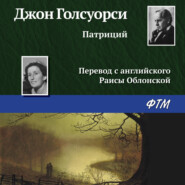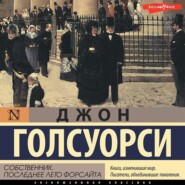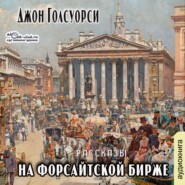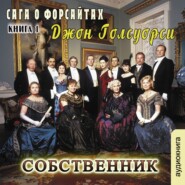По всем вопросам обращайтесь на: info@litportal.ru
(©) 2003-2024.
✖
Tatterdemalion
Настройки чтения
Размер шрифта
Высота строк
Поля
"Holsteig? That young pup who was off to join the German army if he could? By George, is he at large still? This Government will never learn. I'll remember him."
"Harburn," I stammered, "I spoke of this in confidence. The boy is half British, and a friend of mine. I thought he was a friend of yours too."
"Of mine?" he said. "No thank you. No mongrels for me. As to confidence, Cumbermere, there's no such thing in war time over what concerns the country's safety."
"Good God!" I exclaimed. "You really are crazy on this subject. That boy – with his bringing-up!"
He grinned. "We're taking no risks," he said, "and making no exceptions. The British army or an internment camp. I'll see that he gets the alternatives."
"If you do," I said, rising, "we cease to be friends. I won't have my confidence abused."
"Oh! Hang it all!" he grumbled; "sit down! We must all do our duty."
"You once complained to Holsteig himself of that German peculiarity."
He laughed. "I did," he said; "I remember – in the train. I've changed since then. That pup ought to be in with all the other swine-hounds. But let it go."
There the matter rested, for he had said: "Let it go," and he was a man of his word. It was, however, a lesson to me not to meddle with men of temperament so different from my own. I wrote to young Holsteig and asked him to come and lunch with me. He thanked me, but could not, of course, being confined to a five-mile radius. Really anxious to see him, I motorbiked down to their house. I found a very changed youth; moody and introspective, thoroughly forced in upon himself, and growing bitter. He had been destined for his father's business, and, marooned as he was by his nationality, had nothing to do but raise vegetables in their garden and read poetry and philosophy – not occupations to take a young man out of himself. Mrs. Holsteig, whose nerves were evidently at cracking point, had become extremely bitter, and lost all power of seeing the war as a whole. All the ugly human qualities and hard people which the drive and pressure of a great struggle inevitably bring to the top seemed viewed by her now as if they were the normal character of her fellow countrymen, and she made no allowance for the fact that those fellow countrymen had not commenced this struggle, nor for the certainty that the same ugly qualities and hard people were just as surely to the fore in every other of the fighting countries. The certainty she felt about her husband's honour had made her regard his internment and subsequent repatriation as a personal affront, as well as a wicked injustice. Her tall thin figure and high-cheekboned face seemed to have been scorched and withered by some inner flame; she could not have been a wholesome companion for her boy in that house, empty even of servants. I spent a difficult afternoon in muzzling my sense of proportion, and journeyed back to Town sore, but very sorry.
I was off again with the Red Cross shortly after, and did not return to England till August of 1918. I was unwell, and went down to my cottage, now free to me again. The influenza epidemic was raging, and there I developed a mild attack; when I was convalescent my first visitor was Harburn, who had come down to his bungalow for a summer holiday. He had not been in the room five minutes before he was off on his favourite topic. My nerves must have been on edge from illness, for I cannot express the disgust with which I listened to him on that occasion. He seemed to me just like a dog who mumbles and chews a mouldy old bone with a sort of fury. There was a kind of triumph about him, too, which was unpleasant, though not surprising, for he was more of a 'force' than ever. 'God save me from the fixed idea!' I thought, when he was gone. That evening I asked my old housekeeper if she had seen young Mr. Holsteig lately.
"Oh! no," she said; "he's been put away this five month. Mrs. 'Olsteig goes up once a week to see 'im, 'Olsteig. She's nigh out of her mind, poor lady – the baker says; that fierce she is about the Gover'ment."
I confess I could not bring myself to go and see her.
About a month after the armistice had been signed I came down to my cottage again. Harburn was in the same train, and he gave me a lift from the station. He was more like his old good-humoured self, and asked me to dinner the next day. It was the first time I had met him since the victory. We had a most excellent repast, and drank the health of the Future in some of his oldest port. Only when we had drawn up to the blazing wood fire in that softly lighted room, with our glasses beside us and two Airedales asleep at our feet, did he come round to his hobby.
"What do you think?" he said, suddenly leaning towards the flames, "some of these blazing sentimentalists want to release our Huns. But I've put my foot on it; they won't get free till they're out of this country and back in their precious Germany." And I saw the familiar spark and smoulder in his eyes.
"Harburn," I said, moved by an impulse which I couldn't resist, "I think you ought to take a pill."
He stared at me.
"This way madness lies," I went on. "Hate is a damned insidious disease; men's souls can't stand very much of it without going pop. You want purging."
He laughed.
"Hate! I thrive on it. The more I hate the brutes, the better I feel. Here's to the death of every cursed Hun!"
I looked at him steadily. "I often think," I said, "that there could have been no more unhappy men on earth than Cromwell's Ironsides, or the red revolutionaries in France, when their work was over and done with."
"What's that to do with me?" he said, amazed.
"They too smote out of sheer hate, and came to an end of their smiting. When a man's occupation's gone – "
"You're drivelling!" he said sharply.
"Far from it," I answered, nettled. "Yours is a curious case, Harburn. Most of our professional Hun-haters have found it a good stunt, or are merely weak sentimentalists; they can drop it easily enough when it ceases to be a good stunt, or a parrot's war-cry. You can't; with you it's mania, religion. When the tide ebbs and leaves you high and dry – "
He struck his fist on the arm of his chair, upsetting his glass and awakening the Airedale at his feet.
"I won't let it ebb," he said; "I'm going on with this – Mark me!"
"Remember Canute!" I muttered. "May I have some more port?" I had got up to fill my glass when I saw to my astonishment that a woman was standing in the long window which opened on to the verandah. She had evidently only just come in, for she was still holding the curtain in her hand. It was Mrs. Holsteig, with her fine grey hair blown about her face, looking strange and almost ghostly in a grey gown. Harburn had not seen her, so I went quickly towards her, hoping to get her to go out again as silently, and speak to me on the verandah; but she held up her hand with a gesture as if she would push me back, and said:
"Forgive my interrupting; I came to speak to that man."
Startled by the sound of her voice, Harburn jumped up and spun round towards it.
"Yes," she repeated quite quietly; "I came to speak to you; I came to put my curse on you. Many have put their curses on you silently; I do so to your face. My son lies between life and death in your prison – your prison. Whether he lives or dies I curse you for what you have done to poor wives and mothers – to British wives and mothers. Be for ever accursed! Good-night!"
She let the curtain fall, and had vanished before Harburn had time to reach the window. She vanished so swiftly and silently, she had spoken so quietly, that both he and I stood rubbing our eyes and ears.
"A bit theatrical!" he said at last.
"Perhaps," I answered slowly; "but you have been cursed by a live Scotswoman. Look at those dogs!"
The two Airedales were standing stock-still with the hair bristling on their backs.
Harburn suddenly laughed, and it jarred the whole room.
"By George!" he said, "I believe that's actionable."
But I was not in that mood, and said tartly:
"If it is, we are all food for judges."
He laughed again, this time uneasily, slammed the window to, bolted it, and sat down again in his chair.
"He's got the 'flue,' I suppose," he said. "She must think me a prize sort of idiot to have come here with such tomfoolery."
But our evening was spoiled, and I took my leave almost at once. I went out into the roupy raw December night pondering deeply. Harburn had made light of it, and though I suppose no man likes being cursed to his face in the presence of a friend, I felt his skin was quite thick enough to stand it. Besides, it was too cheap and crude a way of carrying on. Anybody can go into his neighbour's house and curse him – and no bones broken. And yet – what she had said was no doubt true; hundreds of women – of his fellow countrywomen – must silently have put their curse on one who had been the chief compeller of their misery. Still, he had put his curse on the Huns and their belongings, and I felt he was man enough to take what he had given. 'No,' I thought, 'she has only fanned the flame of his hate. But, by Jove! that's just it! Her curse has fortified my prophecy!' It was of his own state of mind that he would perish; and she had whipped and deepened that state of mind. And, odd as it may seem, I felt quite sorry for him, as one is for a poor dog that goes mad, does what harm he can, and dies. I lay awake that night a long time thinking of him, and of that unhappy, half-crazed mother, whose son lay between life and death.
Next day I went to see her, but she was up in London, hovering round the cage of her son, no doubt. I heard from her, however, some days later, thanking me for coming, and saying he was out of danger. But she made no allusion to that evening visit. Perhaps she was ashamed of it. Perhaps she was demented when she came, and had no remembrance thereof.
Soon after this I went to Belgium to illustrate a book on Reconstruction, and found such subjects that I was not back in Town till the late summer of 1919. Going into my Club one day I came on Harburn in the smoking-room. The curse had not done him much harm, it seemed, for he looked the picture of health.
"Well, how are you?" I said. "You look at the top of your form."
"Never better," he replied.
"Do you remember our last evening together?"
He uttered a sort of gusty grunt, and did not answer.
"That boy recovered," I said. "What's happened to him and his mother, since?"
"The ironical young brute! I've just had this from him." And he handed me a letter with the Hanover post mark.

















